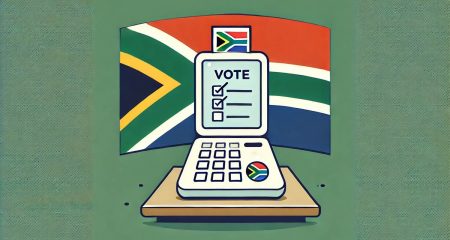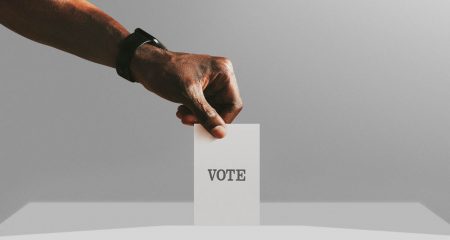
The constitutional court ruled on Tuesday that local government elections can go ahead on 3 August without a complete voters’ roll.
Chief justice Mogoeng Mogoeng said the Electoral Commission of South Africa’s (IEC’s) failure to record addresses of voters was inconsistent with the rule of law and was invalid.
However, the constitutional court did not have the powers to postpone elections, so the 2016 local government elections would go ahead.
The IEC filed an urgent application with the court in April, seeking leave to appeal an earlier electoral court ruling that it furnish addresses of registered voters to candidates contesting the elections.
The electoral court ruling could potentially result in millions of registered voters being disqualified from casting their votes in the upcoming local government elections, because the IEC does not have their proper addresses.
Last month, parliament was told that the IEC did not have the addresses of around 46% of more than 26m people registered to vote in the August local government elections.
This case stems from a November 2015 constitutional court ruling that that the 2013 Tlokwe by-elections in North West were not free and fair. The court found that the closely contested vote fell short of the standards set out in the constitution.The ANC had won all the contested wards, except one.
The independent candidates included former ANC councillors expelled in July 2013 for participating in removing an ANC mayor.
Before the by-elections, the candidates had lodged objections with the IEC over voter registrations in their respective wards.
In those by-elections in six wards, the applicants complained of delays in receiving the segments of the voters’ roll to be used for the by-elections.
These segments also did not include the residential addresses for any voters.
The candidates approached the electoral court for an order that the December by-elections be postponed, but the court was unable to convene to hear the application.
The by-elections went ahead and six of the candidates lost.
Following the by-elections, the IEC conducted its own investigation into the allegation that voters not entitled to register in these wards had been registered and their participation affected the by-election results.
It found that 1 040 people were identified in its investigation to have been incorrectly registered on the segments of the voters’ roll for the affected voting districts.
Following these revelations, the constitutional court set the by-elections aside and these were to be re-contested in February this year, with all new voters required to provide details of their address or sufficient details of where they lived in order for them to be placed in a voting district.
On the eve of the fresh by-elections, however, the electoral court halted the voting processes after the six independent candidates complained that the IEC had not upheld the November 2015 constitutional court ruling, as over 4 000 addresses were missing from the voters’ roll.
They requested a postponement of the elections. The electoral court upheld the argument and ruled that that the by-elections would again not be free and fair.
The ruling resulted in the delay of several by-elections which had been scheduled around the country.
In its urgent application presented to the constitutional court last month, the IEC argued that the electoral court’s interpretation of the November 2015 judgment was wrong, and that it was only obliged to furnish voters’ addresses which it had in its possession.
The commission said before 2003, it was not required to keep addresses of voters and it highlighted that the lack of a voters’ address did not make the voting roll irregular.
The commission has also revealed that around 8m dwellings did not have an address and that many of these did not have a tar road running next to them.
The ANC agreed with the IEC, while the Democratic Alliance and the Inkhata Freedom Party opposed the application for leave to appeal.
The DA argued that the court should order the relief sought in the direct access application to the court but limit it only to the 2016 local government elections.
The IFP, on the other hand, opposed the direct access application, proposing that a provisional balloting system be used by the IEC to solve the issue.




